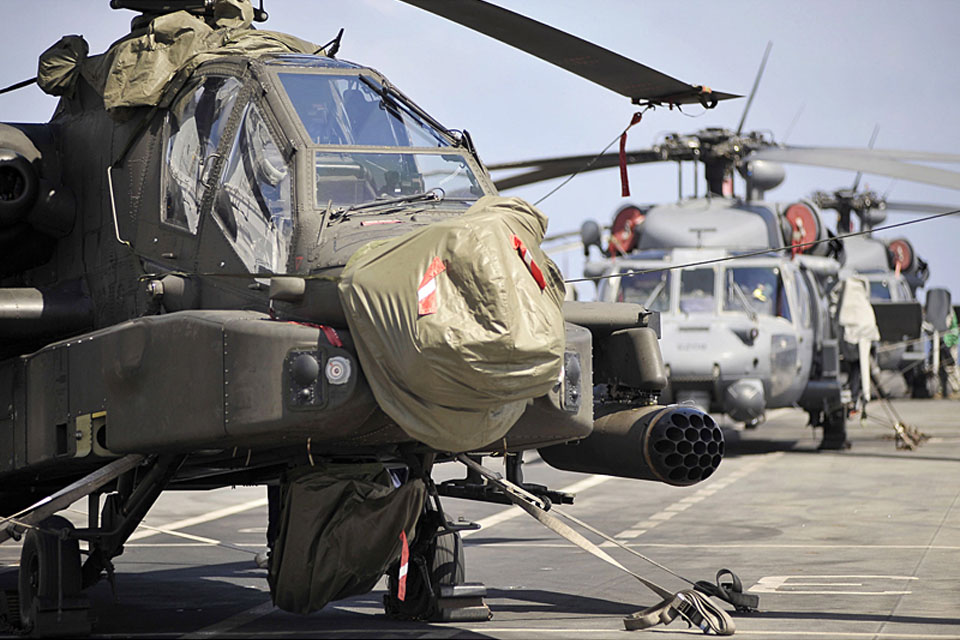"We are beginning a difficult year for the Middle East...peace for many in the region is but a distant memory."
Statement by Ambassador Matthew Rycroft, UK Permanent Representative to the United Nations, at the UN Security Council Open Debate on the situation in the Middle East.

Thank you Mr President – and thank you Nickolay for your briefing just now, which made clear that we are beginning a difficult year for the Middle East. Fifty years since the Six Day War and almost six years since the start of fighting in Syria, peace for many in the region is but a distant memory. Years of violence are now sadly the norm.
We saw this last week on the streets of Jerusalem. Let me take this opportunity to condemn that horrific terrorist attack and offer my sincere condolences to the four victims and their families.
There simply can be no justification for this kind of terrorism. The United Kingdom urges the authorities to take appropriate action against those who commit such crimes. And we call upon Hamas, and other terrorist groups, permanently to end their violence and rocket fire against Israel.
At the root of this violence lies a seemingly unending cycle of poisonous rhetoric and incitement. The British Government strongly condemns the use of racist, anti-Semitic and hateful language. We deplore incitement wherever it comes from.
As the Quartet Report made clear, this spiral of violence and incitement is only eroding the prospects of a two-state solution. It’s critical that the Palestinian leadership implement the recommendations of the Quartet Report and continue their efforts to tackle terror and incitement, strengthen institutions, and develop a sustainable economy.
It was because of the UK’s long running support for the two-state solution and our commitment to Israel as the Jewish homeland that we voted in favour of Resolution 2334 last month. It’s long been our position that Israeli settlement activity is illegal and undermines the viability of two states for two peoples.
But we should also recognise that the resolution called upon all parties to exert efforts to launch credible negotiations on all final status issues, and urged the intensification and acceleration of international and regional efforts to support a comprehensive peace.
We recognise that, ultimately, an agreement can only be achieved by direct negotiation between the parties. But international action has an important role to play in supporting those bilateral efforts, and in helping bring about peace. And it’s long overdue.
Mr President, turning briefly now to Syria, we begin 2017 much as we did 2016 - with some cautious and fragile optimism.
But though 2016 began with promise - the International Syria Support Group, Resolution 2254, the London Conference - the year that followed saw some of the worst violence since the start of the conflict. We owe it to the people of Aleppo and so many others to ensure that in 2017 we see the end of atrocities by the Syrian regime.
That means this year must be the year that we see a full, nationwide Cessation of Hostilities; one monitored by the United Nations, and one that leads to a return to genuine and inclusive political negotiations led by the UN. We will support all efforts that bring about that reality. And for that reason we welcome the adoption of resolution 2336 last year. And it’s time for that resolution, and all those before it, to be fully enacted.
The ceasefire agreed by Russia, Turkey and Iran, which came into force on 29th of December is still very fragile. Reports of violations are commonplace. We must continue to monitor developments in the coming days and weeks, and ensure that all those directly involved in violations, and those with influence, adhere to the ceasefire.
We’re especially concerned about the situation in the Wadi Barada area of Damascus. Civilians there are facing intense bombardment from pro-regime forces. More than 5 million people across Damascus also remain without access to the central water supply. And there are still more than 700,000 people in besieged areas in Syria, the vast majority besieged by the regime, whose activity has been abetted by external actors.
So we can be under no illusions. The task to bring peace to Syria remains painfully incomplete. The frameworks for dialogue are there, but they cannot exist on paper alone. And those who have perpetrated terrible crimes in Syria continue to escape justice. As we work together to find peace this year, we must pursue accountability in tandem.
And to that end, the United Kingdom and France will be putting forward a resolution to ensure that those members of the regime who were involved in that abhorrent use of chemical weapons will face the consequences. We urge all members to support this vital initiative when it comes before the Council.
Thank you.